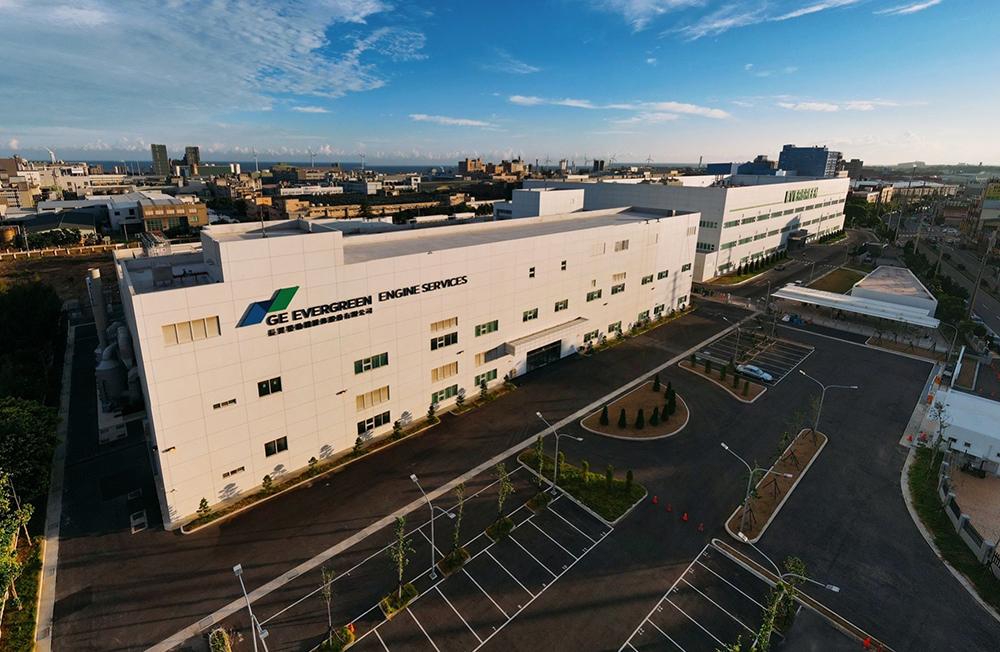
Taiwan’s Evergreen Aviation Technologies (EGAT), a joint venture of EVA Air and GE Aerospace, was hit hard by the COVID-19 crunch on Asian traffic. EGAT’s business is picking up now, and its sister company, GE Evergreen Engine Services (GEEVES), is enjoying very strong demand for engine shop visits.
“Ramp-related aircraft services by EGAT have been steadily recovering,” says Kin Chong, executive vice president for business coordination. Asian passenger traffic is still not as fully recovered as North American and European traffic, but Kin says passenger traffic through Taiwan is now at 75-85% of pre-pandemic levels, with differences among destination pairs.
One lagging market has been Taiwan-China traffic. “Though the recovery has been steady, travel between Taiwan and China remains relatively muted, compared with the pre-COVID period, partially aggravated by China’s late relaxation of its zero-COVID policies as well as partially by heightened geopolitical tensions,” adds Kin.
EGAT provides ramp maintenance for Boeing 737s, 747s, 767s, 777s, 787s, Airbus A320s, A321s and A330s. Cargo ramp maintenance, which sustained EGAT during the pandemic, is slightly down but that dip has been more than offset by major gains in workloads for passenger aircraft as the recovery gathers pace.
Component repair work is beginning to show the same recovery pattern. “Component repair work is making a muted recovery at EGAT as demand for repairs on cabin-related accessories, tire assemblies and brakes increases,” Kin says.
Heavy airframe work is shifting with the passenger recovery. “The passenger-cargo mix for heavy airframe maintenance workload is experiencing a tilt and positive bias toward passenger aircraft,” Kin says. The three major aircraft types providing most airframe heavy check work are widebodies: 747s, 777s and 787s.
The engine business at GEEVES’ shops was never hit as hard as EGAT’s airframe work because strong cargo traffic generated plenty of work on certain engines, especially the GE CF6-80C. Engine intake and delivery volumes reached pre-COVID levels in 2022, and the MRO provider is now projecting volume to achieve a record high in 2023 as airlines recover further.
GEEVES’ primary challenge is getting timely materials amid global supply chain constraints, but Kin says remedies are underway. These include developing engine component repair capabilities locally at GEEVES’ repair back shops.
GEEVES’ work is currently split about evenly between CF6 and GEnx engines. “However, we’re projecting GEnx to pivot and surpass 50% of our total volume starting 2024,” Kin says.
As in other advanced economies, the availability of MRO labor remains extremely tight. “Different non-aviation industries compete with MROs such as EGAT for the same resource pool of apprentices,” Kin says. “Skilled apprentices are being lured away to markedly higher paying tech jobs in the tech sector.”
Fortunately, Kin says 10-15% of these departing workers eventually come back to EGAT. The returning workers say their tech jobs often required AOG-like work conditions, which was a driver for returning to the MRO industry.
EGAT has been working with one of its customers on task card e-signatures since 2020 to improve efficiency of work processes. The technology was deployed on one airframe type in 2022 and it is now being applied to another major airframe type.
EGAT has also been interested in drone inspections. However, current airport regulations limit inspection drones to enclosed spaces such as closed-door hangars. “Progress on drone inspections remains arrested as the local civil aviation authority grapples with proposed changes to existing regulations, despite several heated town hall meetings between the local authority and MRO interest groups,” says Kin.





